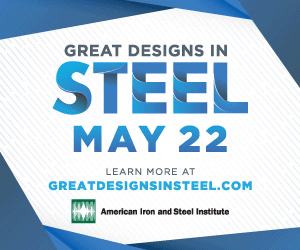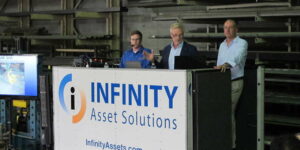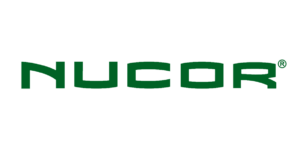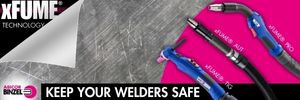One More Thing That is Certain
For shops that still do business in the same old slow ways, death and taxes are certain. But one other thing is absolutely certain for those who want to stay competitive and profitable.
Posted: October 17, 2017
Benjamin Franklin once said, “In this world nothing can be said to be certain, except death and taxes.” If wise Ole Ben took a look at our industry today, you could hear him add, “Nothing else can be said to be certain, except that all manufacturers want positive tax and regulatory reform, lower interest rates, less bureaucratic interference and a level playing field. Nothing else can be said to be certain, except that they are all under increasing pressure to get more done faster, using new materials, with less resources, all under tighter tolerances of quality.” Ah, quick study that he is, Ole Ben also notes, “And yet, as the coming New Year approaches, we all see something that is absolutely certain: the means that manufacturers use to accomplish all of these goals and remain competitive is changing – big time.”
Ole Ben is saying, with absolute certainty, that to remain competitive – to even remain in existence – shops must become more precise and efficient . . . in everything. Being able to produce and deliver all sorts of new, complex, very precise parts and assemblies, in much shorter times to meet compressed schedules, now requires a highly efficient, fully interconnected operation in all facets of business. “Take heed if your company is still slow to make decisions, slow to respond, still weighted down by traditional department silos,” warns Ole Ben. “Those days of doing business are over. You must change and adapt. You must connect to live long and prosper.”
Wise Ole Ben sees how, more than ever, companies must adapt to doing business inside the connected Internet of Things (IoT), an environment that demands higher speed, greater precision, and more efficiency in everything. Those who heed his call and think ahead can unlock some great opportunities to compete profitably in markets that others who are slower, less precise and less efficient cannot even enter. This is exactly what the late Dick Kallage preached on when he predicted how the fully interconnected shop will evolve to remain competitive:
- In the current state of competition, a $10 million high mix manufacturer requires 60-75 employees to operate.
- In 2020, a $10 million high mix manufacturer will require 45-60 employees to operate.
- In 2025, a $10 million high mix manufacturer will require 20-30 employees to operate.
- Beyond 2025, a $20 million high mix manufacturer will require 20 employees to operate.
This sort of evolution requires shops to invest in some very big changes and understand that “fully interconnected” moves way beyond using multitasking machines, next generation robotics and tablets on the shop floor. This is about the digital transformation of your entire business. “To compete, we must now execute with the seamless order fulfillment of Amazon, navigate business with the floor transparency of Google Maps, and perform all operations with the efficiency of autonomous vehicles,” explained Peter Höcklin, the president and chief executive officer of TRUMPF Inc. (Farmington, CT), as he described the new Smart Factory they opened in Chicago this fall – a fully interconnected shop for IoT systems that was custom designed for digitally-connected production processes throughout. Investments in this new 50,000 sq ft facility included $15 million in construction and another $15 million in equipment.
Some 40 percent of the entire North American sheet metal processing market is based in and around Chicago, and this smart factory intelligently connects their entire sheet metal process chain: from the initial order for a sheet metal component to its design, manufacture and delivery. As you enter the control room, large screens provide you with real-time process performance data for the current production process. Behind them, you can look out over a 180 ft long production hall that houses a sheet metal manufacturing line directly connected to a high storage bay that supplies materials to the machine tools. Take a stroll down the overhead skywalk that spans the production hall and you get a comprehensive view of the factory, its production systems, and their entire material and information flows. Tony Stark could build his next Iron Man suit here.
Not all shops can afford to change on this scale right away, but they all must begin the transformation as soon as possible, in their own way. “Advances in CAD/CAM, ERP, augmented and virtual reality, smart machine controls and factory automation for IoT are transforming the way shops do business,” explains Ole Ben. “Now is the time to create highly efficient software threads that connect sales, product development, manufacturing, delivery and after-sales service and support.” He’s right. One thing is certain: connecting is the only way for shops to live long and prosper.
Mike Riley is the editor of Fabricating & Metalworking magazine. Share your thoughts with him at 205-994-5299 or mriley@fandmmag.com.
















